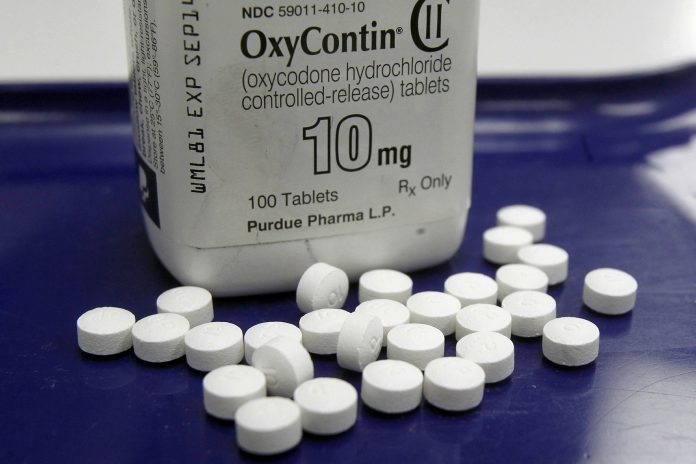
A bipartisan congressional investigation released Wednesday found that key players in the nation’s opioid industry have spent $65 million since 1997 funding nonprofits that advocate treating pain with medications, a strategy intended to boost the sale of prescription painkillers.
The report from Sens. Chuck Grassley of Iowa and Ron Wyden of Oregon found the contributions continued in recent years, even as the industry’s practices and the toll of opioid addiction came under greater scrutiny.
The senators, the top Republican and Democrat on the Senate Finance Committee, are considering legislation to expand an existing federal system that tracks payments from companies to doctors so it will include payments to nonprofit organizations.
They also want guidelines to require more transparency on the federal task forces and panels that help the U.S. Department of Health and Human Services develop policies.
“We’ve found that the possibility of donor influence could and has undermined the efforts to develop and advocate good policy,” Grassley said in a statement. “When it comes to opioids, we need to make sure there is transparency and accountability to prevent what, in this case, led to serious public misunderstanding of the risks of these highly addictive drugs.”
Opioids include prescription drugs such as OxyContin and Vicodin as well as illegal ones like heroin and illicitly-made fentanyl. They have been linked to 470,000 deaths in the U.S. since 2000. In a 2016 investigation, The Associated Press and Center for Public Integrity found that opioid makers were backing advocacy groups that supported access to the drugs.
For the report released Wednesday, the senators’ staffs examined financial records for 10 advocacy groups that endorsed access to powerful prescription painkillers from 2012 through 2019. The investigation added the new findings to previous Senate investigations that tracked similar information back to 1997.
Wednesday’s report identified a series of connections between the contributions and the work done by the groups.
In 2017, one of the groups, the Alliance for Patient Access, took over the Alliance for Balanced Pain Management, a project previously run by Mallinckrodt. The company, one of the nation’s biggest makers of generic prescription opioids, paid the group $200,000 that year to help support its efforts.
The nonprofit has said that it alone determines the group’s advocacy efforts, which include using physical therapy, chiropractic care and yoga as alternatives to opioids for pain treatment after surgery. It said it would have a response to the Senate report later Wednesday. Mallinckrodt did not immediately respond to questions.
Mallinckrodt this year announced a $1.6 billion settlement of thousands of lawsuits over its opioids and later declared bankruptcy, in part to allow it to pay the settlement over time.
The report also found that the drugmaker Daiichi Sankyo paid the American Chronic Pain Association $75,000 in 2018 as part of the group’s efforts to promote formulations of opioids that were supposed to deter abuse. That type of drug has not been found to be less addictive than other types of opioids, though it is harder to crush or dissolve to get a faster or more powerful high. The American Chronic Pain Association did not immediately respond to a message seeking comment.
A month after the payment, the advocacy group posted a video on its website in which a doctor seems to downplay the addiction risk of that type of drug, saying it’s an “unusual” occurrence.
Daiichi Sankyo was the fifth-largest contributor to the groups from 2012 to 2019. The top four, all of which gave at least $2 million over that span, were Teva, Pfizer, Insys and Purdue Pharma. Daiichi Sankyo did not immediately respond to messages from the AP.
“The potential dangers presented by opioids makes this Trojan horse-style of marketing particularly troubling,” Wyden said in a statement. “But make no mistake that such practices are widespread across the pharmaceutical industry, and consumers are often left in the dark.”
___
Follow Mulvihill at http://www.twitter.com/geoffmulvihill

